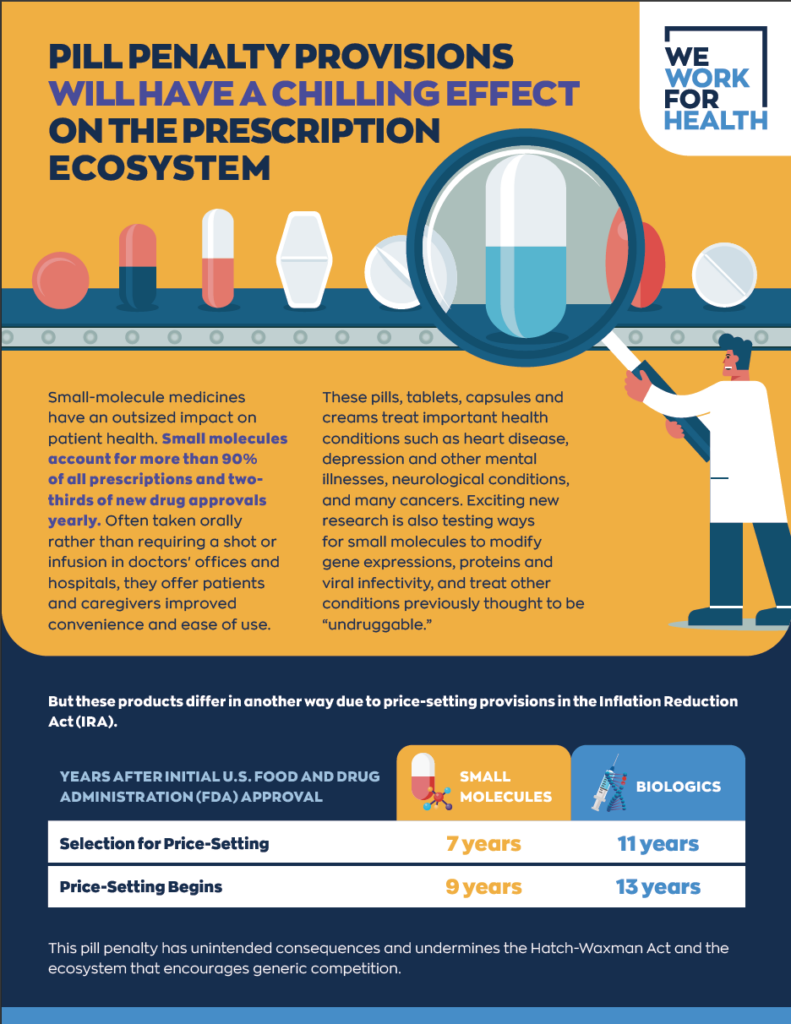Debunking Misinformation on Interchangeable Biosimilars
March 20, 2025
A recent IQVIA report funded by the generics industry trade group Association for Accessible Medicines is propagating several misleading claims about interchangeable biosimilars. ASBM has frequently addressed misinformation efforts about interchangeablity biosimilars in recent months, to correct the record and reinforce the rigorous FDA standards now protecting patient safety and treatment stability. Here are some of the false and misleading claims from the report alongside factual corrections:
- False Claim: The report suggests U.S. physicians are hesitant to prescribe biosimilars due to negative perceptions of their quality. Fact: Surveys show that 92% of U.S. physicians trust the safety and efficacy of biosimilars, with 89% willing to prescribe them. The primary concern is who controls substitution: 69% support physician/patient control; 58% oppose insurer/PBM-driven switching.
- Misleading Claim: It misleadingly states that the European Medicines Agency (EMA) declared all biosimilars interchangeable with their reference products. Fact: The EMA’s designation of interchangeability explicitly refers to prescriber substitution, not pharmacy switching, which is often banned in Europe.
- False Claim: The report falsely claims that biosimilar developers must conduct switching studies to achieve FDA interchangeable status. Fact: The FDA has approved the majority of interchangeable biosimilars without requiring clinical switching studies, but has discretion about what type of data it may require. Notably, 88% of U.S. physicians affirm that such studies increase their confidence in these medications [Source].
- Misleading Claim: It argues that state-level policies on interchangeability introduce complexities to the market. Fact: There is a broad agreement on policy: every U.S. state allows any biosimilar to be prescribed by physicians, but only FDA-designated interchangeables can be substituted by third parties like insurers and PBMs. Only 11% of physicians support permitting third-party substitution of all biosimilars.
- Misleading Claim: The report suggests that the interchangeability designation implies non-interchangeable biosimilars are inferior. Fact: 92% of U.S. physicians trust the safety & efficacy of biosimilars. The issue isn’t perception—it’s treatment stability. Interchangeable biosimilars provide data proving that switching won’t compromise outcomes. 87% of physicians prefer switching patients only if the biosimilar has been rigorously evaluated for its impact on safety & efficacy.
- Misleading Claim: It posits that “confusion around interchangeability” hampers biosimilar development. Fact: There is an overwhelming consensus among all U.S. States and DC about biosimilars: any biosimilar may be prescribed by physicians, but only FDA-designated interchangeable biosimilars may be substituted by third parties (insurers, PBMs). Their extra data ensures switching won’t compromise safety/efficacy. Again, only 11% of physicians support permitting third-party substitution of all biosimilars.
For more detailed discussions and to dispel common myths about interchangeable biosimilars, refer to the ASBM’s Myth vs. Fact Sheet or visit www.SafeBiologics/ICBiosims.
